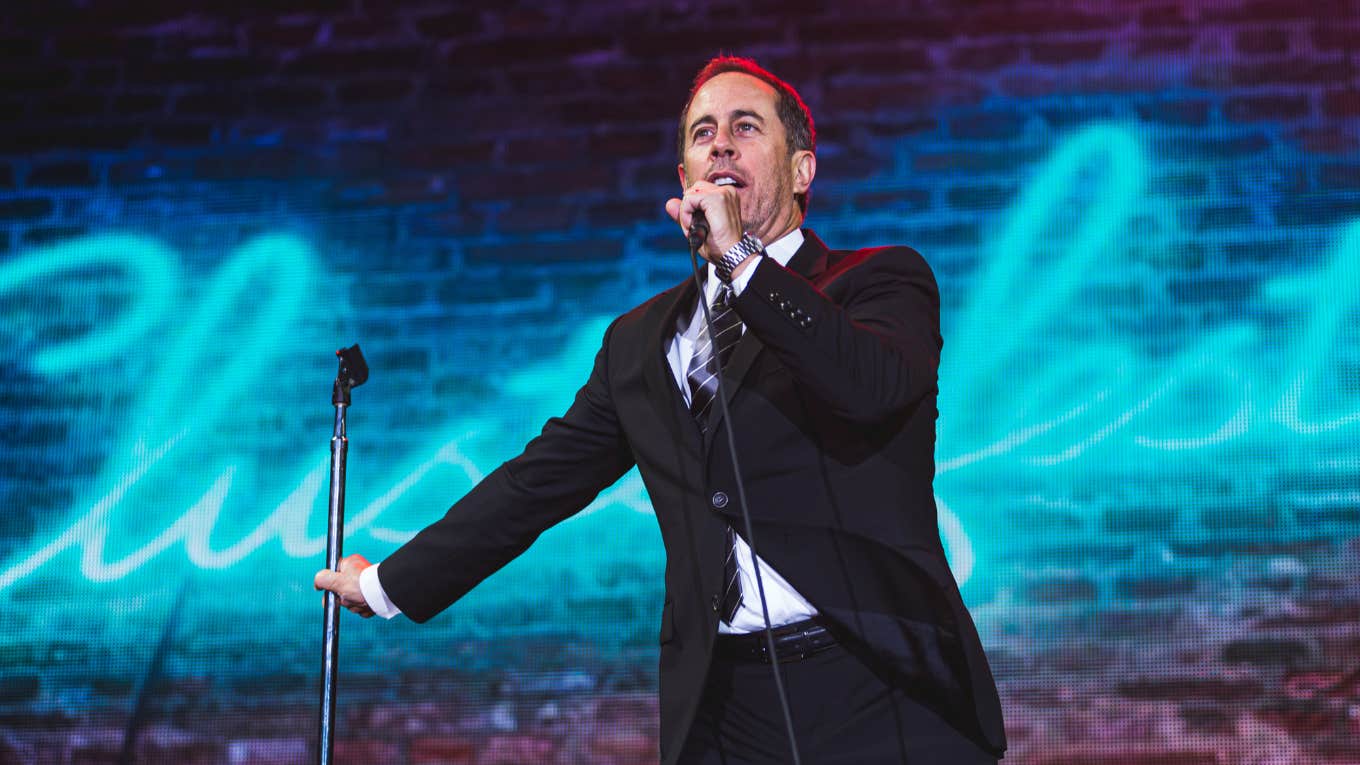Jerry Seinfeld's Dating History Questioned After He Admits He Misses 'Dominant Masculinity' — 'I Like A Real Man'
As if men don't still hold the world's power.
 Nounpusher Photography / Shutterstock
Nounpusher Photography / Shutterstock Jerry Seinfeld has built an entire career out of commenting on the smaller annoyances of being a person in the world.
In an interview with Bari Weiss, Seinfeld showcased why he should probably stay away from bigger, hot-button issues, like trying to define gender within a societal context.
Jerry Seinfeld’s dating history is being called into question after he admits he misses ‘dominant masculinity.’
The 70-year-old comedian showed his age and his bias in an interview for the podcast “Honestly with Bari Weiss.”
Seinfeld is in the midst of a press tour for “Unfrosted,” which takes place in Michigan in 1963, telling a crucial story about breakfast pastry that the world certainly needs right now.
During the interview, Weiss noted the era, referencing what she called “A sense of one conversation” in the '60s that doesn’t exist today.
“Obviously, there were problems, like the Civil Rights Movement had yet to start,” Weiss said. But the thing that was present at the time that I feel isn’t now is a sense of one conversation, like a common culture.”
Seinfeld agreed, offering a nod and an affirmative “Yes.”
The form of nostalgia that Seinfeld and Weiss are buying into is a dangerous one. It upholds the false idea that there was ever a monolithic culture in the U.S., using the words “common culture” when what they really mean is white and male and straight.
Seinfeld, for his part, dug the hole even deeper by praising what he called “A dominant masculinity.”
He referenced JFK, Muhammad Ali, Sean Connery, and Howard Cosell as the epitome of manhood.
“That’s a real man,” Seinfeld said. “I want to be like that someday.”
But it was what he said next that truly invoked the incels of the world and every man who’s ever made rigid, sweeping statements about a social construct like gender.
“I miss a dominant masculinity,” Seinfeld said. “Yeah, I get the toxic, thank you, but still, I like a real man.”
In light of what Seinfeld thinks makes someone a 'real' man, it can’t go unsaid that he dated a high school senior when he was 38 years old.
In 1993, at the height of sitcom fame, Seinfeld met 17-year-old Shoshanna Lonstein in Central Park.
The grown man and teenage girl dated for four years until Lonstein graduated from UCLA with a degree in history and art history.
Is it a sign of real manhood to place yourself in a relationship based on an imbalanced structure of power? Is it a sign of real manhood to take advantage of young women whose brains aren’t fully matured?
These are the hard-hitting questions someone should ask Seinfeld.
Seinfeld waxed poetic about other aspects of society he misses now that the '60s are over, specifically “An agreed-upon hierarchy” that he believes “Is absolutely vaporized in today’s moment."
“I think that is why people lean on the horn and drive in the crazy way that they drive: because we have no sense of hierarchy. And as humans, we don’t really feel comfortable like that,” he said.
Commentary on traffic patterns aside, it shouldn’t be quite so alarming to hear an old man harken back to the days of yore, when women couldn’t open a bank account without a husband, being gay was criminalized, and Black people had no civil rights.
But it is alarming, although not entirely surprising, for Seinfeld to complain about gender roles.
After all, he’s been accustomed to holding a position of power for 70 years. Now, the world is changing, however slightly, and men like him might find themselves judged for their past actions, like dating a high schooler when they’re middle-aged.
Alexandra Blogier is a writer on YourTango's news and entertainment team. She covers social issues, pop culture analysis and all things to do with the entertainment industry.

